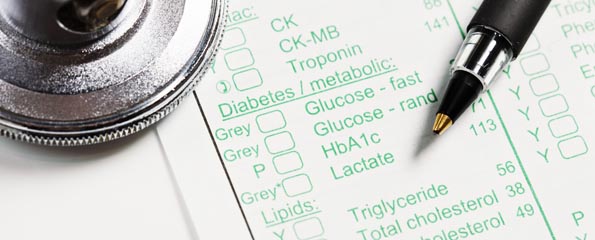General Practitioners (GPs) are the most visible and well known part of healthcare. Dealing with a plethora of health issues from athlete’s foot to anaemia, coeliac disease to cancer, GPs require pathology to help them diagnose and treat their patients.
The general nature of their work means GPs have a relationship with pathology on several different levels; referring patients for tests, communicating results to patients and sometimes collecting the sample themselves.
We asked some GPs from around Australia what pathology means for them in their work:
1. What sort of tests do GPs most commonly request?
Full blood count tests and liver function tests are both common pathology tests but there are also differences depending on where GPs are located. The environment and population in a GP’s area will usually affect what the prominent health concerns are. For example, a GP in rural Queensland told us he often requests skin biopsy tests because of the high rates of skin cancer in his area, but a GP based in an inner Melbourne suburb often requests STI tests, including urine tests for gonorrhoea and chlamydia, because many of his patients are young adults.
2. How important is pathology in the work of GPs?
Every GP we spoke to told us pathology is very important to them. One GP was able to compare his experience of working in a developing country with working in Australia.
“I have worked in eastern Uganda where we did not have good access to pathology services. All diagnosis was based on clinical impressions alone which at times was hopelessly inaccurate. A huge range of conditions went unrecognised; there was a lot more trial and error. For example you’d treat something as if it was malaria, if the patient didn’t get better you’d treat for pneumonia and if that didn’t work you’d try something else.”
3. How much do patients know about pathology?
Doctors told us that there are some misconceptions among patients. Some doctors also noted that patients didn’t understand the importance of their tests and didn’t return to the doctor or call in for results.
A GP based in a Tasmania said, “I encourage patients to follow up on their results, and to ask questions about them and what they mean. Many do not understand the importance of pathology results.”
Another GP based in Brisbane told us some patients ask for ‘a blood test for everything’ and many don’t understand the complexity of pathology testing or that the results are often part of a picture combined with other clinical information.
“They think a blood sample goes into a machine and an answer comes out.”
4. How easy / difficult is it for GPs to explain pathology results to patients?
Doctors said that for the most part pathology results are not too difficult to explain. However, there are some occasions where pathology needs more explanation from the GP; for example when a test needs to be performed again, where there is a grey area and also ‘window periods’ where a disease may take time to show up.
5. Would it help GPs if patients knew more about pathology?
All of the GPs agreed that it would help for patients to have more knowledge about pathology, in particular to clear up common misconceptions. One GP said, “It would be helpful for them to understand pathology’s limitations but to also understand its value.”
This goes to show how important resources like the website Lab Tests Online are to assist in informing patients.
6. How much interaction do GPs have with pathologists?
GPs told us that the quality of pathologists’ reports meant that most of the time when they speak to pathologists it is about an unusual diagnosis or a result that was very much out of the ordinary.
7. Can you think of a particularly memorable case where pathology has been invaluable?
Every GP we spoke to told us there were numerous cases in which pathology had been critical. In addition to this, all the GPs we spoke to were keen to point out the value of a normal or negative result.
One Brisbane based GP put it like this; “Every time I order a pathology test it is invaluable. For example, diagnosing melanoma – I can’t do that without pathology – but diagnosing that it’s not melanoma is invaluable too. A negative finding is often as important as a positive one.”

